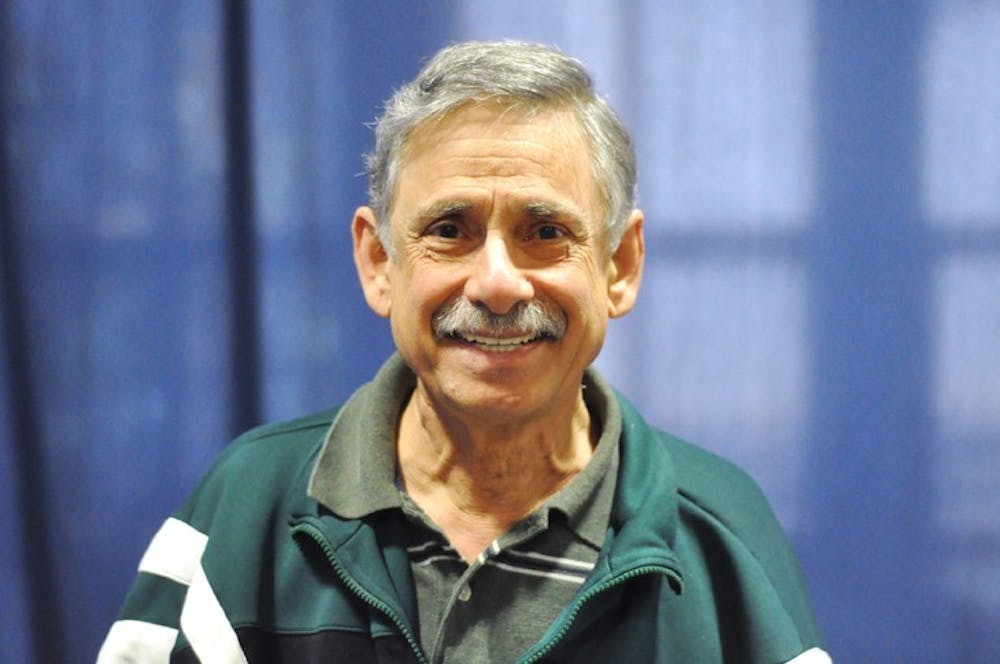School of Communication Professor Robert Lehrman is one of the ten remaining finalists in The Washington Post’s America’s Next Great Pundit competition.
In order for Lehrman to remain in the competition, readers must vote for him today before 6 p.m. on The Post’s website. If Lehrman receives enough votes to continue to the next round, he and the dwindling finalists will continue to face challenges that test their ability as modern pundits.
The winner of the contest will receive a three-month contract with The Post, which will include a weekly column and occasional blog posts. Lehrman said that it would be fun and gratifying to write opinion pieces for The Post, which has a large and influential readership.
At the beginning of the competition, 1,400 people entered, but only 50 continued to the next round after Post editors judged the entries on style, intelligence and “freshness of argument,” according to The Post’s website. Three of those chosen 50 were AU’s Lehrman, senior in the School of Public Affairs Jordan Boyd and another professor in SOC, Rick Rockwell.
Through a round of voting last week, the 50 contestants were narrowed down to ten. Boyd and Rockwell were eliminated, but Lehrman has moved on in the contest.
The 10 remaining contestants are participating in the first challenge round this week, “So you think you can blog?”
Entry to the contest required applicants to write opinion pieces of no more than 400 words about something in the news. Rockwell’s submission, “The price of Internet freedom” explored the Internet’s role in changing the economy of journalism, and what that means for writers.
In his piece, “Hopeless and disillusioned,” Boyd addressed the frustration that he and other young Democrats feel after waiting for years for the change that they were promised in 2008.
“As someone who has hoped for change for four years, I'm suspicious that my vote and the opinions attached to it won't matter — even if the Democrats win,” Boyd wrote.
When Boyd discovered that he and Lehrman were in the same competition, he shared a laugh with his speech-writing professor. Lehrman wrote the book on speech writing — it is the required textbook for Boyd’s class.
Lehrman entered the contest with “Pakistan—more than a miner problem,” an editorial piece in which he questioned how the public and media can passionately follow one story, while ignoring other major issues such as the desperate situation in flood-stricken Pakistan.
Lehrman said in a phone interview that this first post was one of his favorites because it is an issue that he cares deeply about. Lehrman frequently reads about world issues, especially those concerning the lives of children, but said that people don’t want to face these problems in the news.
By Friday morning, Lehrman has made nine entries on washingtonpost.com for the competition. His sixth post was an assignment for which finalists were asked to write a piece that could become a regular feature in The Post. Lehrman created “The 3Bs: Three ways to get a bigger bang for the buck,” which focused on some of the issues facing people in impoverished nations and put the actual cost of international development in perspective.
One of the problems that Lehrman addressed was malaria, an easily preventable disease that kills about three million people a year, a third of which are children. He wrote that the cost for completely preventing those deaths is about $3 billion a year, which Americans spend on potato chips every fourteen weeks.
“Potato chips are tasty,” Lehrman wrote. “But wouldn't saving a million or so kids be a bigger bang for the buck?”
Lehrman is a political speechwriter and four-time novelist. In 2010 AU named him Adjunct Professor of the Year.
llandau@theeagleonline.com





